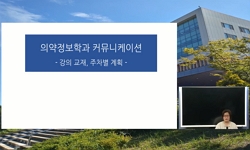Over the last 10 years, the number of cancer survivors in South Korea has reached nearly one million with a survival rate of 49.4%. However, integrated supportive care for cancer survivors is lagging. One area in which the current cancer control polic...
http://chineseinput.net/에서 pinyin(병음)방식으로 중국어를 변환할 수 있습니다.
변환된 중국어를 복사하여 사용하시면 됩니다.
- 中文 을 입력하시려면 zhongwen을 입력하시고 space를누르시면됩니다.
- 北京 을 입력하시려면 beijing을 입력하시고 space를 누르시면 됩니다.

Cancer Control and the Communication Innovation in South Korea: Implications for Cancer Disparities
한글로보기https://www.riss.kr/link?id=A101653542
- 저자
- 발행기관
- 학술지명
- 권호사항
-
발행연도
2013
-
작성언어
English
- 주제어
-
등재정보
SCOPUS
-
자료형태
학술저널
-
수록면
3411-3417(7쪽)
- 제공처
-
0
상세조회 -
0
다운로드
부가정보
다국어 초록 (Multilingual Abstract)
Over the last 10 years, the number of cancer survivors in South Korea has reached nearly one million with a survival rate of 49.4%. However, integrated supportive care for cancer survivors is lagging. One area in which the current cancer control policy needs updating is in the utilization of information and communication technology (ICT). The remarkable progress in the field of ICT over the past 10 years presents exciting new opportunities for health promotion. Recent communication innovations are conducive to the exchange of meta-information, giving rise to a new service area and transforming patients into active medical consumers. Consequently, such innovations encourage active participation in the mutual utilization and sharing of high-quality information. However, these benefits from new ICTs will almost certainly not be equally available to all, leading to so-called communication inequalities where cancer survivors from lower socioeconomic classes will likely have more limited access to the best means of making use of the health information. Therefore, most essentially, emphasis must be placed on helping cancer survivors and their caregivers utilize such advances in ICT to create a more efficient flow of health information, thereby reducing communication inequalities and expanding social support. Once we enhance access to health information and better manage the quality of information, as a matter of fact, we can expect an alleviation of the health inequalities faced by cancer survivors.
동일학술지(권/호) 다른 논문
-
Imperfect Correlation of Mammographic and Clinical Breast Tissue Density
- Asian Pacific Journal of Cancer Prevention
- Alipour, Sadaf
- 2013
- SCOPUS
-
Understanding the Breast Cancer Experience: a Qualitative Study of Malaysian Women
- Asian Pacific Journal of Cancer Prevention
- Yusuf, Azlina
- 2013
- SCOPUS
-
- Asian Pacific Journal of Cancer Prevention
- Panahi, Marzieh
- 2013
- SCOPUS
-
- Asian Pacific Journal of Cancer Prevention
- Unal, Olcun Umit
- 2013
- SCOPUS




 ScienceON
ScienceON






